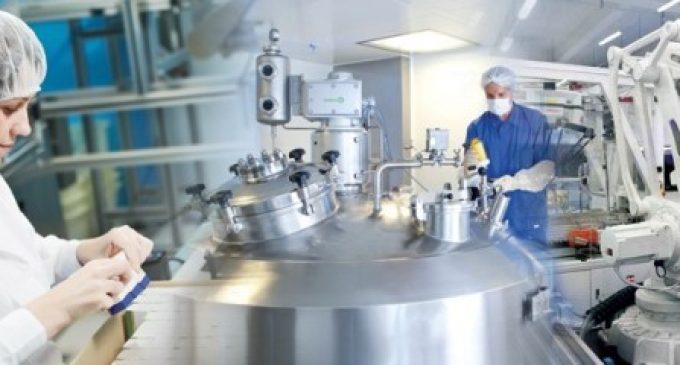UK Manufacturing Growth Forecasts Fall by a Quarter in Six Months

The percentage of small businesses in the manufacturing sector predicting growth has fallen since the start of the year – from 46% to 34% – despite bullish growth predictions from other sectors – according to Novuna Business Finance.
Nationally, UK small business growth forecasts for the next three months remain remarkably robust, despite soaring inflation and price rises. Further, a monthly comparison to Novuna Business Finance data four weeks ago suggests the resignation of the Prime Minister has had little impact on small business outlook.
The latest findings from the quarterly tracking study of 1,201 small business leaders, conducted last week, revealed that 34% of small business owners predicted growth for the next three months – with no change from when the survey was last conducted on 7th June (also 34%). Since the lockdown era, when the percentage of small businesses predicting growth fell sharply (hitting a record low of just 13% in Q2 2020), small business confidence bounced back in Q2 2022 – and it has remained consistent between 34-37% for the last six consecutive quarters.
At a time when many industry commentators have described the UK economy as being in crisis[1], the new data suggests smaller UK businesses are relatively bullish about adapting to change and many enterprises see uncertainty as an opportunity. Nationally, 30% of small business owners that were forced to re-purpose their operations during lockdown now predict growth – and 31% that were forced to close their doors during Covid have now fully bounced back.
By sector, the picture was far more uneven – and it was here where it became clear which sectors had already been impacted by rising costs and travel disruption. Sectors more closely aligned to professional services and technology – legal (41%), IT/ telecoms (44%) and finance/accounting (44%) – saw more small businesses predicting growth than was the case three months ago. In contrast, manufacturing (34%) was one of the sectors where confidence fell – along with small businesses in hospitality (31%), and retail (20%). There was a particularly sharp fall in the construction sector (18%), where the percentage of small businesses predicting growth has halved since the start of the year.
Percentage of small business owners that predict net growth by sector
| Q1
2022 |
Q2
2022 |
Q3
2022 |
|
| IT & telecoms | 40% | 40% | 44% |
| Finance & accounting | 35% | 39% | 44% |
| Legal | 29% | 35% | 41% |
| Media & marketing | 52% | 38% | 36% |
| Manufacturing | 46% | 40% | 34% |
| Real estate | 24% | 35% | 32% |
| Hospitality & leisure | 29% | 41% | 31% |
| Transport & distribution | 27% | 31% | 30% |
| Agriculture | 23% | 25% | 25% |
| Retail | 23% | 25% | 20% |
| Construction | 36% | 29% | 18% |
Jo Morris, Head of Insight at Novuna Business Finance, comments: “Whilst some sectors have been hit particularly hard by prices rises and supply chain pressures, the findings from our latest quarterly research are remarkably reassuring for the UK as whole – and our data underlines the crucial role small businesses play in the UK’s economic recovery post-lockdown. The change of Prime Minister, in theory, should be a hugely unsettling time for many small business owners because the direction of future Government policy on issues such as tax and business support suddenly becomes an unknown. We would have expected to see the cost-of-living crisis play out more profoundly in our latest quarterly research, but the picture that emerges is of a small business community determined to succeed. Many have survived Covid through a willingness to change and innovate and this dogged determination has helped many to become more agile and resilient in reacting to change.”


























